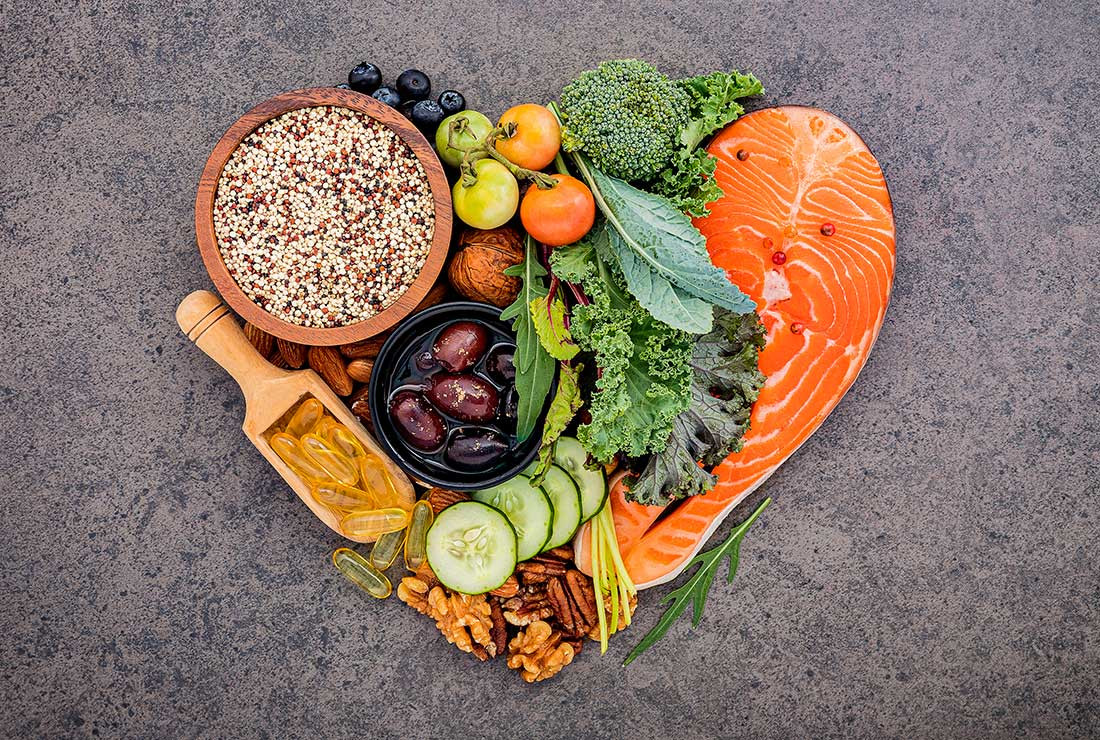Everything About Healthy And Balanced Food: Benefits of Enjoying Plant Based Options
The conversation surrounding plant-based diets has actually gained considerable focus over the last few years. Numerous individuals are discovering the prospective health advantages, nutritional benefits, and environmental influences linked with these dietary choices. As individuals end up being a lot more aware of their food's influence on health and sustainability, concerns emerge about the practicalities of adopting such a way of life. What certain changes can one expect, and how might these options improve not just individual health and wellness however additionally the world's future?
Understanding Plant-Based Diet Regimens
Several individuals associate plant-based diet regimens mostly with vegetarianism or veganism, these diets can include a vast array of consuming patterns that focus on entire, minimally processed plant foods. Such diet plans usually include fruits, veggies, whole grains, legumes, seeds, and nuts, while eliminating or restricting animal products. This flexibility permits people to tailor their nutritional selections according to nutritional needs and individual preferences. Some may adopt a primarily plant-based diet plan while still periodically consuming meat or milk, typically described as a flexitarian approach. The emphasis remains on incorporating even more plant foods, which can bring about a varied selection of dishes and flavors. Understanding these numerous interpretations of plant-based eating is crucial for valuing its ease of access and charm in contemporary food culture.
Health Advantages of Plant-Based Foods
The health advantages of plant-based foods are substantial, using a nutrient density benefit that sustains overall well-being. Research shows that these foods can enhance heart wellness and play an important duty in effective weight administration. By integrating a lot more plant-based choices, individuals may boost their dietary choices and promote long-term health and wellness.
Nutrient Thickness Advantage
Nutrient thickness plays an important function in the wellness benefits of plant-based foods, making them an engaging option for those looking for a well balanced diet. Plant-based foods, such as fruits, vegetables, legumes, nuts, and entire grains, are often rich in vital vitamins, minerals, and antioxidants while being lower in calories. This high nutrient density permits people to eat fewer calories while still satisfying their dietary needs. In addition, these foods are loaded with nutritional fiber, advertising digestive health and assisting in weight management. By incorporating nutrient-dense plant-based options, consumers can improve their general health, support their immune systems, and minimize the risk of chronic diseases. Ultimately, the nutrient thickness of plant-based foods emphasizes their significance in a health-conscious lifestyle.
Heart Health Renovation

Weight Monitoring Support
In addition to advertising heart health, a plant-based diet regimen can substantially assist in weight management. This dietary method stresses whole foods such as fruits, veggies, vegetables, nuts, and entire grains, which are usually lower in calories and greater in fiber contrasted to animal-based items. The high fiber content assists enhance satiation, reducing total calorie consumption. Plant-based diet plans are frequently abundant in vital nutrients while low in unhealthy fats, making it easier to maintain a healthy and balanced weight. Research study shows that people who adopt a plant-based way of life have a tendency to have reduced body mass indexes (BMIs) and experience more successful weight management compared to those who consume meat-heavy diet regimens. As a result, accepting plant-based options is a tactical choice for efficient weight management
Nutritional Worth of Plant-Based Ingredients
Plant-based ingredients are rich in important nutrients, supplying a varied range of vitamins, minerals, and antioxidants that add to general health. A contrast of healthy protein resources reveals that while pet items are commonly considered as premium, numerous plant-based choices provide sufficient protein and other beneficial substances. Understanding the nutritional worth of these active ingredients can help people make educated nutritional see here selections.
Vital Nutrients in Plants
Nutrient-rich active ingredients discovered in plants use a varied array of necessary nutrients that add substantially to overall wellness. These components are abundant in vitamins A, C, and K, which sustain immune feature, vision, and blood clotting, specifically. Furthermore, plants supply crucial minerals such as potassium, calcium, and magnesium, important for heart health and wellness, muscle mass feature, and bone toughness. The visibility of fiber in plant-based foods help food digestion and promotes a healthy gut microbiome. Antioxidants, found generously in veggies and fruits, aid battle oxidative stress and lower swelling. Additionally, several plant foods are reduced in calories yet high in nutrients, making them a superb selection for those looking for to keep a healthy and balanced weight while making sure suitable nutrient consumption.
Comparing Protein Sources
Protein resources differ substantially in their dietary accounts, with plant-based active ingredients providing unique benefits. Unlike pet healthy proteins, which commonly include saturated fats and cholesterol, plant healthy proteins often tend to be reduced in these harmful components. Legumes, nuts, seeds, and entire grains are rich in important amino acids, fiber, vitamins, and minerals. For example, lentils provide high protein material alongside considerable iron and folate, while quinoa is a full healthy protein, supplying all 9 necessary amino acids. Additionally, plant-based proteins are often gone along with by antioxidants and phytochemicals that sustain general wellness. The change to plant-based healthy protein sources not just boosts nutritional consumption yet likewise aligns with sustainable nutritional techniques, minimizing ecological influence and promoting lasting health and wellness benefits.
Ecological Impact of Plant-Based Eating
As understanding of climate modification grows, many individuals are exploring lasting nutritional selections that can substantially minimize their ecological footprint. Plant-based consuming has actually arised as a significant factor to minimizing greenhouse gas discharges, which are mostly connected with livestock production. The cultivation of fruits, grains, legumes, and vegetables typically calls for less resources, such as water and land, contrasted to animal farming. Furthermore, plant-based diets can result in decreased logging, as less land is required for grazing animals or growing animal feed. By moving in the direction of plant-based alternatives, customers can support biodiversity and promote much healthier ecosystems. Overall, embracing plant-based consuming not only benefits personal wellness yet additionally stands for an important step toward ecological sustainability and conservation initiatives.
Overcoming Common Misconceptions
While several individuals identify the benefits of a plant-based diet regimen, a number of misunderstandings frequently hinder them from fully embracing this way of life. An usual belief is that plant-based diets do not have adequate protein; nevertheless, various plant resources, such as legumes, nuts, and tofu, give ample healthy protein. Additionally, some think that this diet regimen is pricey, when actually, staples like beans, rice, and seasonal veggies can be rather budget friendly. An additional mistaken belief is that plant-based eating is overly restrictive, whereas it in fact provides a diverse array of foods and tastes. Several worry that a plant-based diet might lead to deficiencies, yet with appropriate planning, individuals can obtain all necessary nutrients, consisting of vitamins and minerals, while taking pleasure in a large selection of tasty meals. Vast Tips for Transitioning to a Plant-Based Way of living
Making the change to a plant-based lifestyle can be an improving experience, though it frequently needs some support to browse the first modifications. Individuals are motivated to begin progressively, incorporating even more fruits, vegetables, beans, and whole grains right into their dishes while lowering meat and dairy usage. Meal planning is important; preparing an once a week menu can aid ease the change and protect against final harmful choices. Discovering brand-new recipes and cooking approaches can also enhance the experience and preserve exhilaration concerning plant-based consuming. In addition, signing up with support system or neighborhoods can offer inspiration and share beneficial suggestions. Remaining informed concerning nourishment assurances balanced meals, protecting against deficiencies while cultivating a healthy, enjoyable plant-based way of life.

Delicious Plant-Based Dish Concepts
Discovering tasty plant-based meal concepts can influence individuals to embrace a much more healthy diet. One preferred choice is a passionate quinoa salad, anchor featuring cherry tomatoes, cucumber, and a spicy lemon-tahini dressing. An additional favorite is a mouthwatering lentil stew, loaded with carrots, celery, and great smelling herbs, perfect for a comforting dinner. For morning meal, over night oats made with almond milk, chia seeds, and topped with fresh berries give a nutritious beginning to the day. Additionally, a dynamic vegetable stir-fry with tofu and a range of vivid veggies can be a fast yet pleasing meal. Creamy avocado salute on whole-grain bread, sprayed with seeds and seasonings, provides an easy yet savory snack. These meals display the variety and richness of plant-based consuming.

Often Asked Questions
Can a Plant-Based Diet Regimen Provide Sufficient Protein?
The question of whether a plant-based diet plan can offer adequate protein prevails. Many resources, including legumes, nuts, seeds, and whole grains, can meet healthy protein requires successfully, sustaining a healthy and balanced diet regimen for individuals.
Are Plant-Based Diet Plans Suitable for Children?
The viability of plant-based diets for children relies on mindful planning. Ample nutrients have to be assured, consisting of vitamins, minerals, and healthy proteins. With correct guidance, such diets can support healthy development and development in kids.
Just how Do I Eat in restaurants on a Plant-Based Diet?
Eating in restaurants on a plant-based diet includes looking for dining establishments with varied food selections, requesting alterations, and checking out vegan-friendly choices. Preparation in advance and connecting nutritional choices can boost the dining experience while keeping dietary selections.
What Prevail Irritants in Plant-Based Foods?
Common irritants in plant-based foods include soy, gluten, nuts, and seeds - BBQ Sauces. People following a plant-based diet needs to know these irritants and read tags meticulously to prevent damaging responses and assure safe intake
Can Plant-Based Diets Assist With Fat Burning?
Study indicates that embracing a plant-based diet regimen may promote weight-loss because of its typically reduced calorie thickness and greater fiber web content. This mix can websites boost satiety, assisting individuals manage their calorie intake effectively. Many people link plant-based diet regimens mostly with vegetarianism or veganism, these diet plans can incorporate a vast array of eating patterns that focus on entire, minimally processed plant foods. Nutrient density plays an essential role in the health benefits of plant-based foods, making them an engaging option for those looking for a balanced diet. Plant-based diet plans have been shown to substantially improve heart wellness, as they typically include aspects that support cardiovascular function. In addition to advertising heart health, a plant-based diet regimen can significantly help in weight management. A typical idea is that plant-based diet plans lack enough healthy protein; nonetheless, countless plant sources, such as vegetables, nuts, and tofu, give sufficient protein.